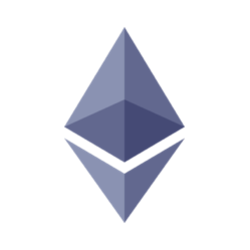About Ethereum
Ethereum Coin Review: Mining Guide, Price & Analysis
Ethereum is a decentralized platform that allows developers to create and deploy smart contracts and decentralized applications (dApps). Launched in 2015, Ethereum quickly grew to become the second-largest cryptocurrency by market capitalization, standing at $69.52 billion at the time of writing. Despite the inherent volatility of the cryptocurrency market, its consistent growth highlights its potential to revolutionize the digital economy.
What Sets Ethereum Apart?
Ethereum is not just a cryptocurrency—it’s an ecosystem powered by its native token, Ether (ETH). While Bitcoin introduced blockchain technology, Ethereum has advanced it significantly by enabling developers to build trustless, decentralized applications. By addressing the limitations of traditional systems, Ethereum provides users with control, safety, speed, and transparency.
To interact with Ethereum’s system, users must use Ether as "fuel" or "gas" to complete tasks. The complexity of the task determines the amount of gas required, reflecting the scalability and efficiency of the network.
How Ethereum Works
Traditional applications, such as Google or Facebook, store user data on centralized servers, leaving them vulnerable to hacks and data breaches. Ethereum addresses this issue by leveraging blockchain technology. Instead of relying on central servers, Ethereum replaces them with a decentralized network of nodes that maintain and store a shared, immutable database known as the blockchain.
Key Features:
- Decentralization: Ethereum operates independently of government control.
- Security: Data is stored across multiple nodes, making hacking nearly impossible.
- Consensus Mechanism: Transactions are verified only after over half the network nodes agree on their validity.
Advanced Ethereum Technology
Ethereum operates on Blockchain 2.0, which introduces smart contracts. These contracts execute transactions only when predefined conditions are met, ensuring trustless interactions that cannot be altered once established. Smart contracts eliminate the need for intermediaries, enhancing transparency and efficiency.
Developers use Ethereum's coding language, Solidity, to build dApps. This user-friendly language is similar to JavaScript, enabling even novice developers to explore decentralized application development. In the future, dApps could replace centralized applications in areas like social media, banking, e-commerce, and more.
Ethereum Mining
Ethereum uses a Proof of Work (PoW) consensus mechanism where miners, also known as nodes, validate transactions and are rewarded with Ether. However, PoW is energy-intensive and environmentally taxing. To address this, Ethereum plans to transition to a Proof of Stake (PoS) mechanism, which is more energy-efficient. Under PoS, validators are selected based on their Ether holdings and rewarded with transaction fees instead of new ETH.
Real-World Applications
Ethereum’s versatility enables a range of practical applications. Notable examples include:
- EtherTweet: A decentralized alternative to Twitter.
- Golem: Allows users to rent out unused computer space.
- Ethroll: A transparent blockchain-based casino.
Using Ether for Payments
Ether facilitates fast and secure payments. For instance, companies can use smart contracts to automate payroll systems, ensuring employees are paid only after completing specific tasks. This ensures transparency and builds trust.
Purchasing Ethereum
Ethereum can be purchased on major cryptocurrency exchanges such as Binance, Coinbase, Kraken, and Coinmama. To store Ether, users need a wallet that securely holds private keys. Wallet options include:
Hardware Wallets: Physical devices like Ledger Nano S.
- Desktop Wallets: Software like Exodus.
- Mobile Wallets: Lightweight options like Jaxx.
- Web Wallets: Exchange-hosted wallets like Coinbase.
- Paper Wallets: Printed copies of private keys for offline storage.
The Ethereum Team and Partnerships
Ethereum was created by Vitalik Buterin, who aimed to overcome Bitcoin's limitations. Dissatisfied with the lack of innovation in Bitcoin, he designed Ethereum to expand blockchain's potential. Ethereum has since partnered with industry leaders like JP Morgan Chase, Microsoft, IBM, and other prominent organizations, further solidifying its credibility.
Advantages
- Built on advanced blockchain technology.
- Secure and reliable platform.
- Supports smart contracts and dApps.
- Developer-friendly with Solidity programming.
- Backed by a reputable team and strong partnerships.
Disadvantages
- High volatility.
- Stiff competition from altcoins like NEO
Final Verdict
Ethereum is a revolutionary platform that empowers developers and users alike. Its smart contracts and dApps are paving the way for a decentralized future. Despite facing competition and market volatility, Ethereum’s robust technology, visionary leadership, and real-world applications make it stand out in cryptocurrency. Whether you're an investor, developer, or enthusiast, Ethereum offers an ecosystem worth exploring and supporting.
 Ethereum
(ETH)
Ethereum
(ETH)
